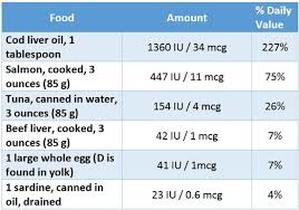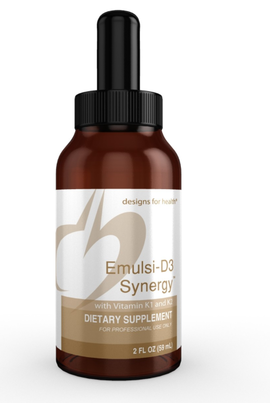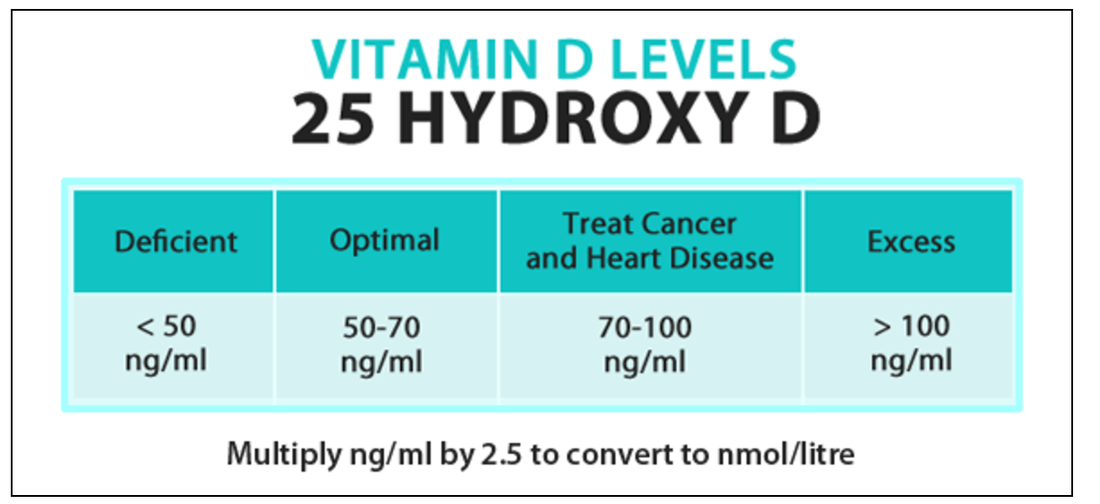 Not long ago vitamin D was simply known as the bone vitamin because its main function was to help absorb calcium, the most abundant mineral in the body. Since vitamin D was primarily regarded as an important nutrient for bone health, it was conventionally thought that a person had enough vitamin D as long as they didn't have bone diseases like rickets or osteomalacia. However, thanks to the work of many scientists, data now show that vitamin D is much more that just a bone vitamin. It is considered by many to be both a nutrient and a pro-hormone, a compound that the body can convert to an active hormone. In the case of vitamin D, the pro-hormone form is produced in the skin and activated in the liver and kidneys; then the active hormone communicates with a variety of other tissues in the body. Nearly every tissue and cell in the body has receptors for vitamin D. Vitamin D is needed for bone growth and bone remodeling, but also has other roles in the body, including modulation of cell growth, neuromuscular and immune function, and reduction of inflammation. It is estimated that upwards of 2,000 genes are directly or indirectly regulated by vitamin D. Three-quarters of teens and adults in the United States are deficient in vitamin D. The results of this deficiency are catastrophic. Studies have shown that vitamin D deficiency is associated with an increased risk of a long list of diseases that span all systems in the body. As a woman, I am particularly concerned with the link between vitamin D deficiency and breast cancer.
Do I need to worry about vitamin D toxicity?
Have you had your vitamin D levels tested? You must check your vitamin D levels often because assessing vitamin D status is one of the most important health-protecting steps you can take. If your serum levels are low, then you are at risk. What should my serum levels be? The first step to ensuring that you are receiving all of the benefits of vitamin D is to find out your levels. According to WebMD, 20-50ng/ml is considered an adequate range for a healthy adult, however this range is too low if you are trying to achieve optimal health. Above 20, you are safe from rickets. Above 30, your gums will be healthy. Above 40, you receive great cancer benefits. Dr. Joseph Mercola, an osteopathic physician and alternative medicine advocate, posits “If you’re using an oral supplement, recent studies suggest adults need about 8,000 IU’s of oral vitamin D3 per day in order to get serum levels above 40ng/ml.” New research shows that higher levels of vitamin D are necessary to provide protection from more serious chronic diseases such as cancer, heart disease, infections, multiple sclerosis and more. The range you are looking for is 50 to 70ng/ml. Sources:
Holick, M. (2005). The vitamin D epidemic and its health consequences. Journal of Nutrition. 135(11): 2739S-48S. http://articles.mercola.com/sites/articles/archive/2011/11/21/how-to-get-your-vitamin-d-to-healthy-ranges.aspx https://www.sciencenews.org/article/vitamin-d-essential-modern-indoor-lifestyle http://www.scientificamerican.com/article.cfm?id=vitamin-d-deficiency-united-states. http://wisemindhealthybody.com/dr-mercola/breast-cancer-prevention-vitamins/?cpt=dax
3 Comments
Jen Yasis
11/1/2016 09:54:35 pm
Thank you for this, Kristin! I also use the same liquid form of D you use, but I go on and off it and am low again. Do you find that from bottle to bottle the taste is slightly different? Does heat or light impact its efficacy? I ask because I sometimes order from amazon and you don't always know where its coming from or how they handle it.
Reply
Kristin
11/2/2016 08:06:55 am
Jen, thank you for your question. Heat and light can impact the potency of the vitamin, so be sure to store your vitamins in a cool place away from direct light. I have never noticed a difference in taste from bottle to bottle. I always recommend ordering directly from Designs for Health because of what you mentioned. If you order from Amazon, you do not know where it is coming from or how it is handled -even if it "looks" like the same product. I don't want to scare you though. There is a notice on the DFH label that says: "This is a natural product that may exhibit color, taste and density variations from lot to lot." Hope that helps.
Reply
Cheryl
11/2/2016 06:27:35 am
Your blog came at the perfect time since my friend just told me yesterday that her Vitamin D level reading came back low and she was going to call her doctor for a prescription. She seemed surprised when I told her she could purchase Vitamin D3 over the counter and started asking me a bunch of questions. I didn't want to mislead her in any way...now I can just send her your blog!
Reply
Leave a Reply. |
All of the information on this website is Copyright © CookingwithKristin.com 2017 and may not be downloaded, reproduced, republished or otherwise copied without express written permission of CookingwithKristin.com.



